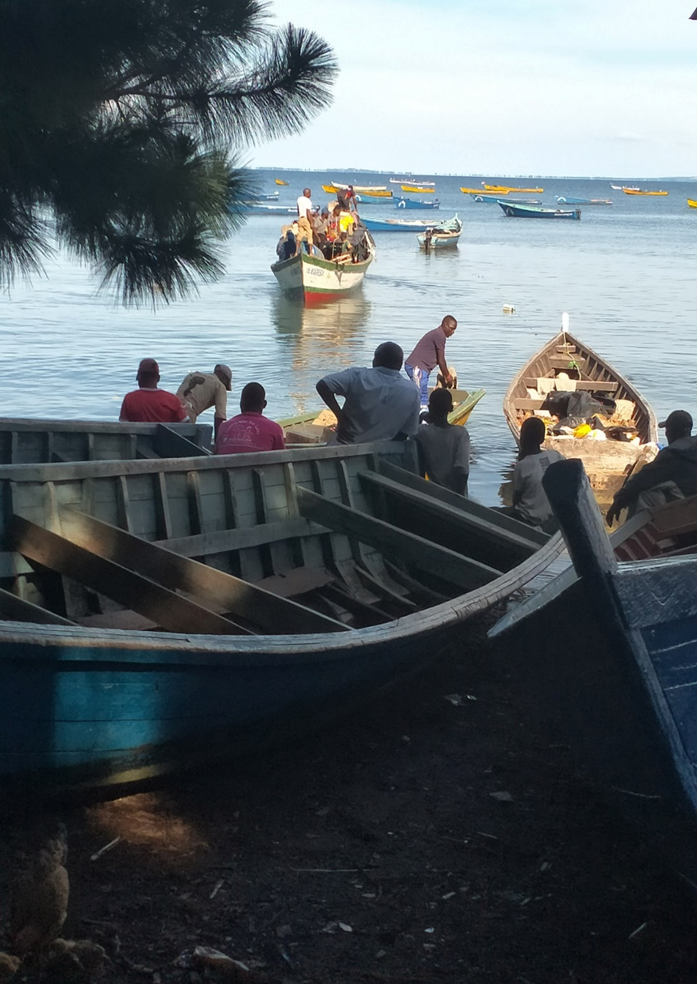ENERGIA PHASE 7: Women Driving The Energy Transition and Climate Justice
- Category: Projects
- Published: Wednesday, 16 April 2025 11:34
- Written by Super User
- Hits: 39
PROJECT |
|
||
|
Title |
TANGSEN EP7 |
||
|
Locations |
Tanzania |
||
|
Duration |
1 October 2022 to 30 September 2026 |
||
|
Planned Budget in Euro |
249,292 |
||
|
Aspirational Budget in Euro |
1,048,200 |
This is the four (4) years’ (January 2023–December 2026) project of the Tanzania Gender and Sustainable Energy Network (TANGSEN), developed under ENERGIA IS. The project contributes to achieving the goal of “ensuring women have equal opportunities to lead and benefit from universal energy access and a climate-just, inclusive energy transition, as an essential right to development”. itis built on more than two decades of TANGSEN experience working with ENERGIA as national partner while mainstreaming gender in energy sector at national, regional and grassroots levels filling the gender gaps in Tanzania. Its design makes it to complement implementation of TANGSEN Strategic Plan (2021-2025) that marks commitment to continue empowering women in energy sector and advocating for more gender equality enabling policy and market environment in Tanzania Energy Sector. Additionally.
 Through this project, ENERGIA and TENGSEN complements the international, regional, and national efforts to achieve among others the gender equality and women’s empowerment (SDG 5) and universal energy access to all (SDG 7). At national level, it promotes increased proportion of women representation in energy sector as employees, professionals, entrepreneurs, leaders and energy enterprise owners while increasing adoption of clean energy in particular for cooking and productive uses, thus for economic and wellbeing improvement of communities.
Through this project, ENERGIA and TENGSEN complements the international, regional, and national efforts to achieve among others the gender equality and women’s empowerment (SDG 5) and universal energy access to all (SDG 7). At national level, it promotes increased proportion of women representation in energy sector as employees, professionals, entrepreneurs, leaders and energy enterprise owners while increasing adoption of clean energy in particular for cooking and productive uses, thus for economic and wellbeing improvement of communities.
Development of this project is based on the fact that despite electricity generation in Tanzania has more than doubled 6000 GWh, still access is very low. The installed on-grid capacity in 2019 was 1,566 MW of which 63% is from fossil fuels, 36% from hydropower, and 1% is produced from biomass.
However, while 78.4% of the total population have access to electricity, only about 8% of households have access to clean cooking facilities. On productive uses men are reported to own the majority of electricity-intensive enterprises and, particularly, the ones that are the most profitable. The few available women energy productive uses are less-electricity-intensive micro/macro business with low profit margins, majority depending on firewood and charcoal.
With the fact that, culturally women are usually responsible for domestic unpaid care work including cooking are highly impacted by the use of biomass resulting in indoor air pollution detrimental to their health. Generally, they benefit less from universal energy access as consumers of cooking products.
To contribute in addressing the challenges, proposed program focuses to unlock potentials for women to lead, participate and benefit from clean energy and climate justice in Tanzania as an essential right to development. Specifically, the Objectives are;
- To empower women economically in cooking value chains and productive uses of energy and to build climate change resilience through enterprise and employment in clean energy and critical sectors for climate change mitigation and adaptation
- To foster enabling policy and market environment for more women’s participation and benefits in transitioning to clean energy and climate justice.
- To improve women’s economic livelihoods in clean energy markets through adoption of gender-transformative approach at the workplace and operations of energy companies.
- To enhance the capacity of energy stakeholders and the public on gender and energy integration in development nexus sectors through learning and knowledge sharing.
- To contribute to sustainability of TANGSEN through devising growth mechanisms
The key actors who will work with TANGSEN in the implementation are energy-based government ministries and agencies; private sector, associations, development partners, and community-basedorganizations. At national level, TANGSEN also works with energy agencies, institutions, and companies to develop and implement gender equality strategies and actions for gender transformative workplaces and operations. This will ultimately to empowering women in productive uses of energy and amplifies their voices through platforms with policy and decision makers, the media, and private sector entities, including financial institutions.

